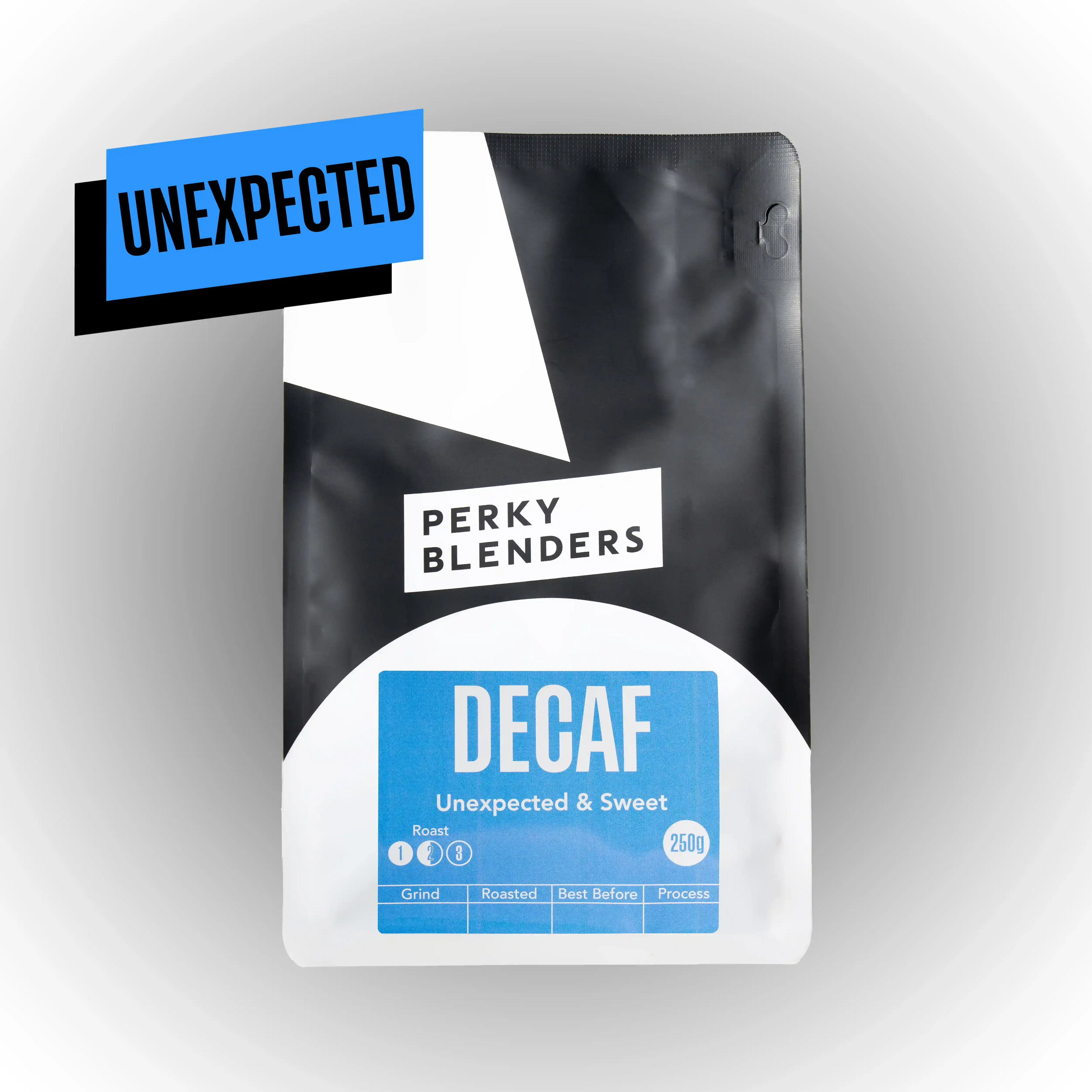STAY IN TOUCH WITH US
Sign up for a dose of Perky Love. Great coffee chat, exclusive offers, and all around good things delivered straight to your inbox.

Hints of: Milk Chocolate, Roasted Popcorn, Black Cherries
Grown in:
Best for: Espresso
Pickup available at Perky Blenders Roasters
Usually ready in 24 hours
Decaf, but make it delicious. Decaffeinated coffee is often underestimated, but when it’s sourced and roasted with the same care as everything else, it can be seriously special. That’s exactly how we approach our seasonal decaf selection at Perky: full respect, no compromises — and only the very best lots make the cut.
Happy Capybara Decaf is a regional blend from Minas Gerais, Brazil — the country’s most important region for Arabica production, responsible for around 74% of Brazil’s total coffee volume.
In the cup, it’s made for espresso: comforting, classic and deeply moreish. Expect milk chocolate and toasted sweet popcorn on the nose, followed by black cherry and dark chocolate as espresso. In milk, it stays beautifully smooth with almond and milk chocolate, plus a very light citrus lift.
This is not an “alternative” coffee.
This is decaf done properly.
We sourced Happy Capybara through our good friends at Volcafe, who work closely with hundreds of farmers across Minas Gerais. Each farm submits samples to Volcafe’s lab in Patrocínio, where a team of quality analysts select, evaluate and carefully curate regional blends including this Happy Capybara decaf.
Once purchased, the coffee travels to Volcafe’s warehouse in Varginha, where it’s sorted by screen size, screened for defects, and prepared for export.
Decaffeination then takes place in Bremen, using the Water – Ethyl Acetate process, commonly known as the Sugarcane / EA method. Ethyl acetate is a naturally occurring compound (often derived from sugarcane), used as a gentle solvent that binds to caffeine.
Here’s how it works: the green coffee is first soaked and steamed to open the pores of the beans. It’s then washed in an ethyl acetate solution that attracts and removes the caffeine. After multiple cycles, the beans are steamed again to remove any remaining EA, then dried, cooled and polished with a final quality control before they’re cleared for roasting.
The capybara is part of the story too. The Happy Capybara logo was created by Fabio from Volcafe’s Brazil team, inspired by the simple joys we all recognise: a great cup of coffee on a rainy morning, good music, and those small moments that make life feel really good.
A proper specialty decaf — treated with the same respect as our fully-caffeinated coffees
Minas Gerais, Brazil — the heartland of Brazilian Arabica
Sourced through trusted, long-term partners at Volcafe
Naturally decaffeinated using the Sugarcane / EA method
Perfect for espresso, with chocolatey depth and a gentle fruit finish
Comforting in milk: almond + milk chocolate with a light, zesty sparkle
Happy Capybara Decaf is your reminder that caffeine-free can still be full of flavour morning, afternoon, or anytime you fancy.